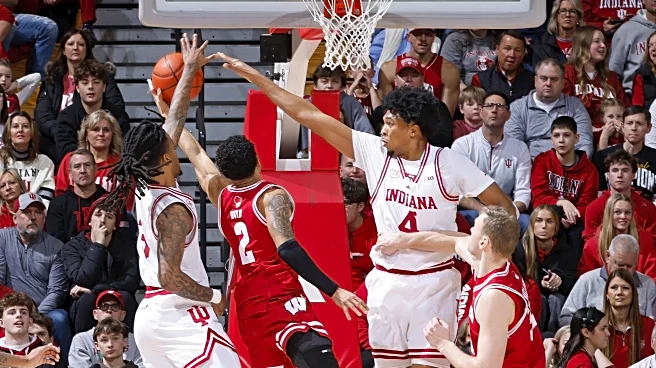What's Happening?
JPMorgan Chase has successfully negotiated agreements with fintech firms, requiring them to pay for accessing customer data. This development marks a significant shift in the relationship between traditional banks and fintech companies. Historically,
fintech firms accessed bank systems without charge, but JPMorgan's new contracts with middlemen like Plaid, Yodlee, and Akoya will now generate substantial revenue for the bank. This move follows a legal battle over the Consumer Financial Protection Bureau's 'open-banking rule,' which initially mandated free data sharing. However, the rule was challenged, and JPMorgan's decision to charge fees has set a precedent that other banks may follow.
Why It's Important?
The decision by JPMorgan Chase to charge fintech firms for data access could have wide-reaching implications for the financial industry. It may lead to increased costs for fintech companies, potentially affecting their profitability and innovation capabilities. Consumers might experience changes in the availability or pricing of fintech services as companies adjust to the new cost structure. Additionally, this development could influence regulatory policies, as the Consumer Financial Protection Bureau revises its open-banking rule. The shift in power dynamics between banks and fintechs may also prompt other traditional banks to adopt similar strategies, impacting the competitive landscape.
What's Next?
As JPMorgan Chase sets a precedent, other major banks are likely to follow suit, potentially leading to widespread changes in how fintech firms operate. The ongoing revision of the open-banking rule by the Consumer Financial Protection Bureau will be crucial in determining the future of data-sharing practices. Fintech companies may need to explore alternative strategies to mitigate the impact of increased costs, such as negotiating better terms or developing proprietary data access solutions. The evolving regulatory environment and industry responses will shape the next phase of the fintech-banking relationship.














